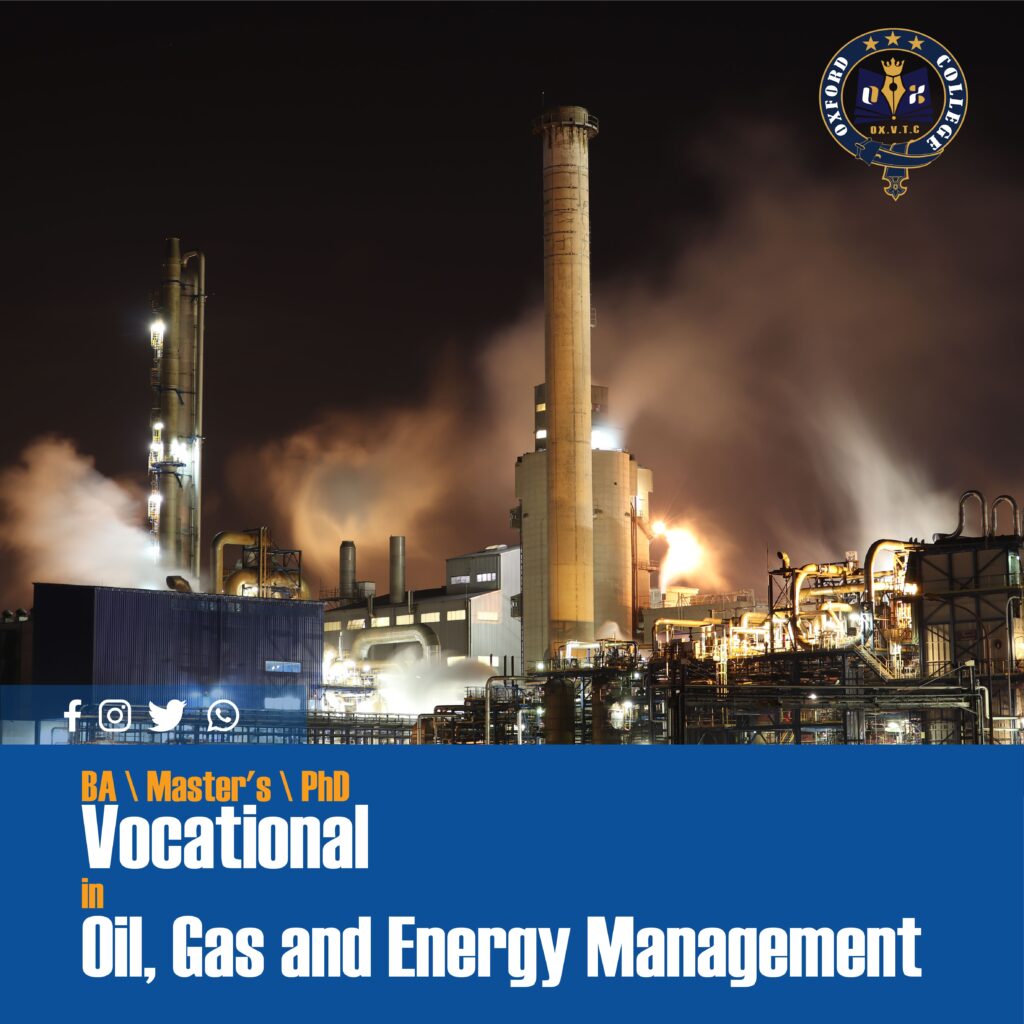Department of Oil Laboratories

اتصل بنا عبر البريد الإلكتروني على info@oxfordcollage.uk أو أرسل استفسارًا تجاريًا عبر الإنترنت.
who should attend?
The program is aimed at:
– Refinery unit managers
– Technical staff at the refinery
– Planning and scheduling specialists
– Trade and blending specialists
– Specialists in crude oil trading
– Laboratory supervisors and technical staff
– Specialists in sales, marketing and product trading
– All oil workers and management, or those wishing to enter it, need real and practical support to apply for jobs in this area.
objective
Program objectives:
– Providing full knowledge of the composition and production of oil and the impact of its selection on the refining process and the quality of the finished products
– Increase the student’s ability to generate and interpret crude oil inspection
– Understand the principles of raw blending and compatibility with raw
– Understanding how to manage raw pollutants and the role of additives
– Assessment of crude oil treatment – technological and economic aspect
– Simulate the process and calculate the simplified unit capacity
– Understanding environmental concerns for crude oil treatment
– Understanding the impact of crude oil processing on the quality of finished products
content
Program themes:
1- Crude oil (installation – production)
2- Crude oil processing and the impact of crude oil quality
3- Crude oil selection strategy
4- Crude oil inspection – data interpretation
5- Crude oil inspection
6- Product quality data
7- Distillation curve
8- Blending crude oil
9- Principles and rules of mixing
10- Crude oil compatibility
11- Raw oil pollutants
12- Instability of the asphalt
13- Crude oil assessment
14- Impact on processing units
15- Unit capacity calculation
16- Product quality assessment
17- Risk management
18- Blending Matrix
19- Compatibility Matri
Looking for higher education, at the postgraduate level (Master’s, Professional Doctorate) ?
